I would like to change the default behavior of how the admin recent changes sidebar displays the name of "objects" added. Refer to the picture below:

I would like to change how these are named in the Admin. Ideally, I would like to be able to change it from "MyModelName object" to, as in the "Policy" object example, something like "Policy: {{ value of the policy's "Policy Name" field. }}.
I was thinking that __unicode__ for my Patient model handled this, but it doesn't appear to. Any assistance is appreciated.